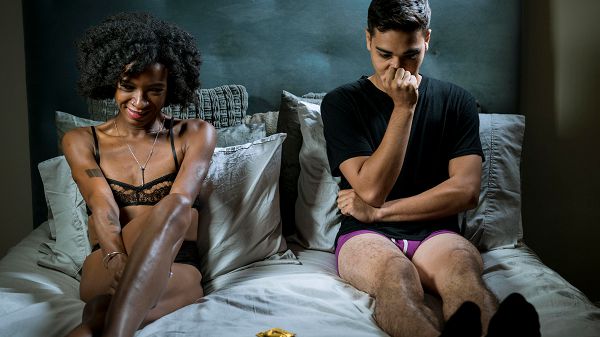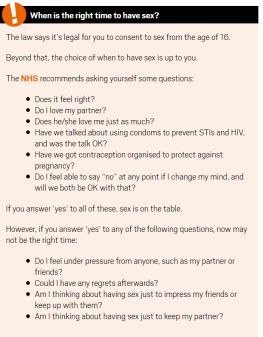
A lot of people didn’t feel ready the first time they had sex
Did you lose your virginity at the ‘right’ time? A lot of British people don’t feel they did.
New research published in BMJ Sexual & Reproductive Health reveals that four in 10 women (just under 40%) and one in four men (26.5%) didn’t feel that the first time they had sex happened at the ‘right’ time.
A lot of these people felt they weren’t really ‘ready’ for sex at the time. Researchers questioned 2,825 sexually experienced British people between the ages of 17 and 24 about their experience of losing their virginity.
Participants were asked whether both they and their partner had been equally keen to have sex, whether the decision had felt like their own, whether contraception was used, and whether they had felt ready at the time to start having sex.
In order for first-time sex to have been at the ‘right’ time, participants needed to have consent, autonomy, contraceptive use, and readiness.

The stats we mentioned above – around 40% of women and 26.5% of men – reflect the percentage of participants who didn’t meet those four definitions of being ready for sex.
One in five women said they and their partner hadn’t been equally willing to have sex for the first time, with the majority of these reporting that they hadn’t been in charge of the decision.
One in ten didn’t use contraception when losing their virginity.
It’s not as simple as being younger or older – the four requirements of ‘sexual competence’ weren’t zero or 100% at any age.
Researchers say that ‘chronological age may be an overly simplistic indicator of the nature of first intercourse’.
In non-science-y speak, that means that just being over the age of 16 doesn’t mean you’re automatically ‘ready’ for sex.
Those who were in stable relationships when they lost their virginity tended to have more positive first-time experiences, and the same went for those who knew about their partner’s sexual status.
Young women who discussed sex with their parents or received sex education at school were more likely to have felt ‘ready’ too.
So it’s not as simple as just telling young people to wait – strong relationships, communication, and education are key.